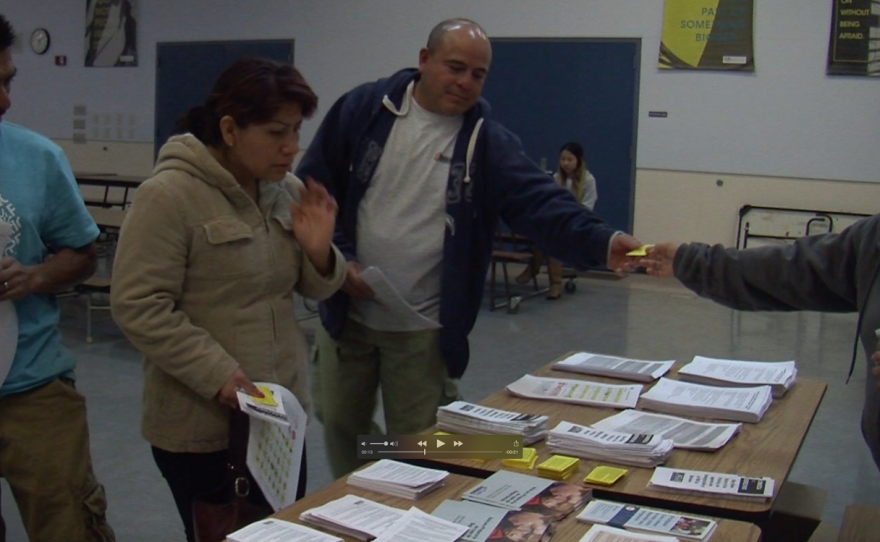The American Civil Liberties Union has started searching for deportees in Mexico who may be eligible to return to the United States as part of a class-action lawsuit against the federal government.
The campaign was launched after U.S. District Judge John A. Kronstadt gave the ACLU a green light to broaden its class of plaintiffs.
Eleven plaintiffs and three Southern California immigrant-rights groups accused the federal government of coercing the plaintiffs, all Mexican immigrants, into signing voluntary return forms. By signing the forms, the plaintiffs forfeited their rights to an immigration hearing and, in some cases, were subject to a 10-year prohibition of legal re-entry.
The lawsuit was brought against the U.S. Border Patrol and Immigration Customs and Enforcement in 2013.
The lawsuit was settled last year, allowing plaintiffs like Isidora Lopez-Venegas to return to the U.S. A single mother and elementary school teacher, Lopez-Venegas spent three years exiled in Mexico with her U.S.-citizen son.
“I felt paralyzed,” she said in an interview.
Lopez-Venegas said she signed a voluntary return form because immigration officials threatened to take away her son if she didn’t.

“I became afraid. I became so nervous," said Lopez-Venegas, who now lives in San Diego. "They were intimidating me, threatening me, and that’s why I got scared and said, 'OK, I’ll sign it.'”
Deportees qualify to join the ACLU’s class-action lawsuit if they signed the voluntary return form between June 1, 2009, and August 28, 2014. They must have been deported to Mexico from the San Diego or Los Angeles field offices, and they had to have reasonable claims to reside in the U.S. at the time of signing.
Reasonable claims include having qualified for the 2012 Deferred Action for Childhood Arrivals or having paperwork in process for an immigration status change. They could additionally claim that they had a citizen spouse, that they they had lived in the U.S. for more than 10 years or had family members with citizenship or green cards.
“We are working with a lot of different organizations across California and throughout Mexico in order to diffuse this information as widely as possible,” said Gabriela Rivera, a staff attorney for ACLU of San Diego & Imperial Counties.
As part of the 2014 settlement, the federal government agreed to provide immigrants with detailed information about the consequences of signing a voluntary return form in the future. Immigration officials will also allow ACLU attorneys to monitor their compliance with the settlement for a period of three years.
The ACLU has four months to find possible additional plaintiffs for its class-action lawsuit. It will then file applications on their behalf through Dec. 22.






